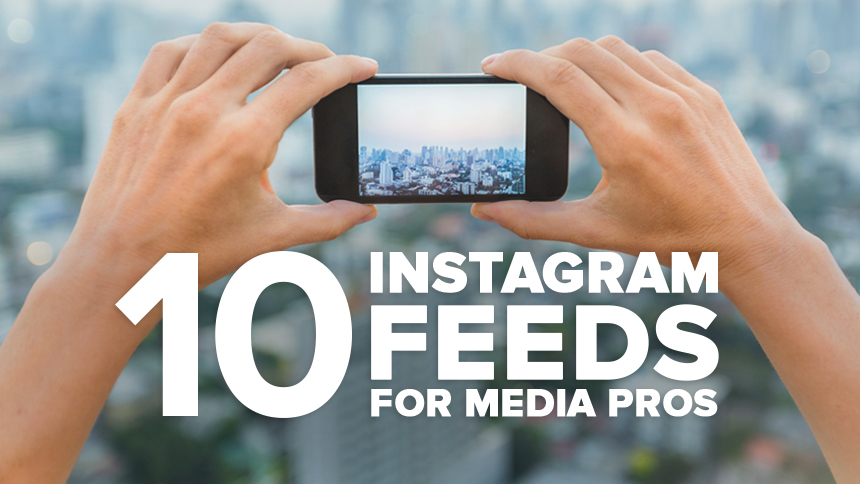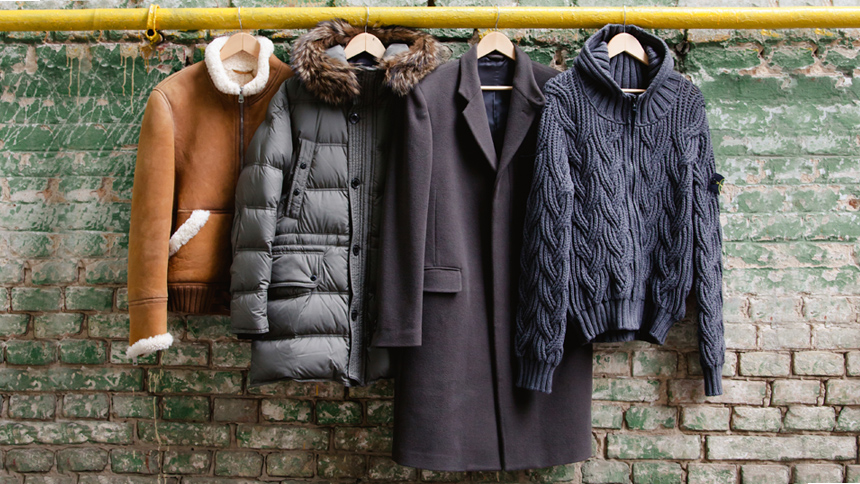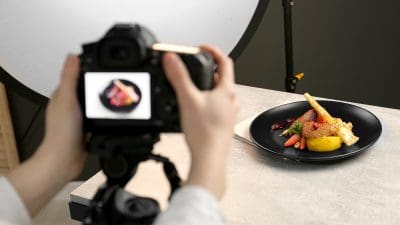The fashion public relations field has exploded and now it looks more glamorous than ever to be promoting big brands and attending runway shows.
But it’s not all glitz and sparkle. The truth is that it takes a lot of hard work—including the kind of tasks you’d never wear Chanel while doing—to break into this industry.
Also on Mediabistro


Here, public relations pros who’ve paid their dues and risen up reveal the real side of fashion PR.
Education is Just a Jumping-Off Point
Traipsing around college with a Prada backpack is just the start. Getting a broad, liberal arts degree is the first stop for those that want to get into the fashion PR field. But you don’t necessarily have to major in PR.
In fact, Robin Kassner, founder and publicist at Haute PR, a New York City boutique fashion, beauty and luxury lifestyle PR agency, went to Brandeis University, which did not offer a PR major. “If you have a solid liberal arts background, are an excellent writer and know how to express yourself effectively, you have a great background for a career in fashion PR,” she says.
Liz Anthony, president at Mariposa Communications in New York City, agrees. She studied English and French in college, and says the communications skills she garnered from those majors have been crucial to her success.
Samantha Slaven-Bick, owner at Samantha Slaven Publicity in Los Angeles, majored in journalism and leveraged it into a career as a magazine editor and writer before she ever entered the public relations arena. She thinks journalism was the perfect major because it taught her how to write, but also enabled her to get in to an editor’s mindset, which is vital because PR pros need to consistently pitch top editors.
If you don’t want to study English, journalism or communications, there are other degrees that can help. Any liberal arts degree, studying marketing, or a major in business is a solid foundation.
“I generally hire people with bachelor’s degrees in communications, English, psychology or business. With any of these majors, most students must learn how to develop strong communication and critical thinking skills,” says Kristin Marquet, president of Marquet Communications in New York City. She says that she does not like to hire students that graduate from fashion colleges.
“They tend to think they know everything about the fashion industry. In turn, they are more difficult to train than non-fashion students,” she adds.
Paying Your Dues
Completing an internship is a smart way to get your foot in the door, and can often lead to getting a full-time job.
Erica Taylor, principal at Erica Taylor PR in New York City, sat on a dirty floor putting a desk from IKEA together on her first day as an intern.
“You have to be willing to do the grunt work,” notes Taylor. She says she is currently looking for interns but finds that many feel they are entitled to be working at a higher level. “I basically worked for free for three years. I got coffee, did research, made lists, lugged around heavy samples, you name it. It sucked, but I got to learn the ins and outs, and now I have people to do that stuff for me.”
Jane Lerman, CEO and founder of L.E.R. Public Relations in New York, remembers what it was like to break in to the field. “When I started out in fashion PR, it was as an intern at a boutique fashion PR agency in London, where one of my gorgeous duties was to do the dishes at the end of the day,” she recalls.
“The first few months were far from glamorous,” she says, although the experience helped her build credibility in the industry. “That experience also taught me how not to treat the people that work for me and instead how to motivate them so that they are excited to come in to work every day, even if there are some mundane tasks that may be necessary to get done.”
Once you get a full-time gig, you’re still not in the clear and can be working on intern-like tasks. “The glitz and glam of fashion PR is only about 10 percent of the job, while the remaining 90 percent is grueling,” adds Marquet. And if you start your own company, be prepared to feel like you’re starting over on the bottom while you build business.
Exposure Is Your Key to Success
Even though you may be answering phones, stuffing gift bags and picking up dry cleaning for the big wigs as an intern or entry-level starter, the exposure you’ll receive in doing so is what really helps make a career.
Just by working for a firm, you can pick up industry skills, as well as a sharp business acumen. “By being around PR professionals and tagging along on meetings, your mind acts like a sponge and soaks up the information around you,” Kassner says.
To move up, it takes a resilient attitude and a willingness to do what it takes to get things done. “Have an upbeat, positive attitude and take any assignment your boss throws your way,” Kassner adds. “The employees who are problem-solvers and figure out what needs to be done before their boss asks them are the ones who get ahead.”
Aba Bonney Kwawu, who founded and operates TAA PR in Washington, D.C., says she once worked for a retail mogul who made her cry at least once a week.
“I fetched coffee, ordered lunch and worked on merchandise until my fingers were numb,” recalls Bonney Kwawu. Today, she is friends with that tycoon and landed one of her biggest clients because of the glowing recommendation he gave her 10 years earlier.
Taryn Scher, president at TK PR in South Carolina worked an entry-level job for six months before she was promoted to PR manager. Less than two years later, she started her own company. Some people say it takes longer, and one can expect to put in entry-level hours doing mundane tasks for a good one to two years.
“If you are a star in this industry, you’ll be on the fast track,” Scher adds.
Persistence and Personality Go a Long Way
So besides knowing the difference between a tall and a grande, what characteristics do you have to possess in order to rise above in this field?
Persistence is key, says Marquet, who notes that because fashion PR pros work with editors and journalists that may not respond to their initial inquiries, they have to be able to follow up tenaciously. “A person has to be aggressive while maintaining professionalism,” she says.
Scher maintains that a thick skin is a must-have. “Fashion PR is like no other PR field when it comes to the intensity,” she says. “You quickly learn that you will hear a lot more no’s than you will yes’s. The fashion industry is brutally honest… if an editor doesn’t like the line, forget it.”
Kassner says that traditional values will get you far. Being sociable and intelligent can help you get ahead. But outstanding writing skills are essential.
Lerman agrees. “Your job is to correspond in writing with journalists, people that write for a living! So if you can’t communicate well via writing press releases [and] pitch letters, you will never be taken seriously,” she says. Lerman says organization is also crucial so you can keep track of editors you speak with and track your clients’ coverage.
Connect Beyond the Business Card Exchange
Networking is also imperative for those in the industry, and not the kind where you simply collect business cards. (Although it does give you the chance to show off the designer samples you may be able to get your hands on… after, of course, you pay your dues.)
Bonney Kwawu skipped the meet-and-greets and served on charity board planning committees to make valuable connections. “I had the opportunity to volunteer with the very people I wanted to network with while supporting wonderful causes,” she says.
Aside from networking and knowing how to pen a press release, it is actually a good thing to be obsessed with fashion in this industry, says Slaven-Bick. “You have to be truly invested in fashion… always reading about it, knowing who the key players are, what the top trends are each season, who the main influencers and emerging leaders are.”
She advises that emerging pros keep up on fashion magazines and blogs. “Follow the top brands to see what they’re doing,” Slaven-Bick adds. “Always be in the loop so you can brainstorm and present new ideas that are currently making news to your clients.”
While connections are important, Kassner says a strong sense of professionalism, smarts and a hard-working nature are key to making a career for yourself in the fashion PR arena.
“Fashion PR is very hot right now,” Kassner notes. “It is very competitive, but there are new firms opening up every day that need good people to help them grow.”
Kick off your PR career with a Mediabistro online course on public relations.










